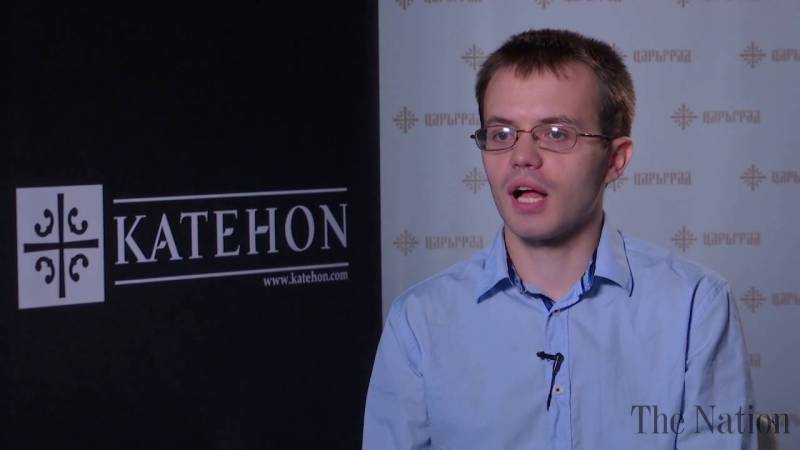American political analyst blasts India over CPEC and Indian policy
Shares

ISLAMABAD - Andrew Korybko, an American political analyst based in Russia, yesterday blasted India’s celebrated expert Nandan Unnikrishnan for hitting below the belt when Indian foreign policy was criticised.
Nandan Unnikrishnan attacked Korybko on Twitter after an article was published by The Nation, titled: ‘Iran and the US-Indian hybrid war on CPEC (China-Pakistan Economic Corridor).
“Whatever this guy is smoking must be good stuff... freeing his mind to riot and not allow facts come in the way of a good argument,” Nandan Unnikrishnan tweeted prompting a strong reaction from Korybko.
Nandan Unnikrishnan is a Distinguished Fellow at Observer Research Foundation, New Delhi. He joined ORF in 2004. He looks after the Eurasia Programme of Studies.
Korybko said in a Facebook post: “Indians should be embarrassed that Nandan Unnikrishnan, one of the most distinguished experts in the country and a senior fellow at the Observer Research Foundation (India’s top think tank), lost his cool and accused me of being on drugs because he couldn’t think of any other way to deny that the joint Indo-American Hybrid War on CPEC has finally blown back into Iran and is destabilising his nation’s ambitious North-South Transport Corridor.”
He added: “It’s even more ridiculous that he felt the need to tag the Indian Embassy in Moscow and even his Minister of External Affairs, suggesting that he’s proud of his personal attack against me and wants to show off to everyone that this is how Indians should respond whenever their country’s foreign policy is criticised.”
In his article Korybko had written: “The southeastern Iranian port of Chabahar, the terminal point of the North-South Transport Corridor that India’s investing in to connect with Central Asia and Russia, was just hit by a suicide bombing that has yet to be claimed by any terrorist group as of the time of this article’s publication. Given what’s known about the regional security situation and its overall strategic dynamics, however, it’s conceivable that this attack is blowback from the joint US-Indian Hybrid War on CPEC that both allied Great Powers are waging against Pakistan via their terrorist proxies of the so-called “Balochistan Liberation Army” and Daesh.”
He wrote: “The general concept put forth and vindicated in hindsight after the latest events is that US-Indian support for BLA and Daesh terrorism against Pakistan will inevitably spread across the border into the Iranian province of Sistan and Baluchistan that hosts the strategic Chabahar port, which could in turn hamper the efficacy of this project for connecting India to Central Asia and ultimately “balancing” Russian and Chinese influence there.
